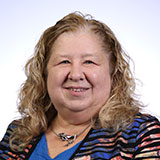Those who care for patients with cancer are special. Clinical team and staff members come to work daily not just for a job, but because they care and want to be a part of helping their friends, neighbors, and community battle an insidious disease. Most of us have loved ones who were touched by cancer, and we bring unique, appreciated, and caring attention to those who we serve.
Even as we go to work every day to help our charges, there are new barriers and challenges to face. We see and address some of them, such as patient benefit coverage, support, and management; staffing conflicts; physician or staff shortages; and the daily reality of providing care for many patients, despite our dwindling resources and increasing demands. There are also unexpected challenges in others who feel they—rather than medical oncologists—may have a better handle on how to manage oncology. I anticipate that 2015 will be a watershed year for the control of oncology care delivery. However, are we as practice managers, nurses, physicians, and oncology care teams ready to stand up and set the bar regarding appropriate management of those dealing with cancer? What can you do to help?
Voice of Oncology for Patients
Oncology associations, such as the American Society of Clinical Oncology, Community Oncology Alliance, American Society of Hematology, and Association of Community Cancer Centers, have advocacy teams that keep us informed about trends and issues related to oncology in Congress. Legislatures at the state level, however, often are buried in a slew of proposed local bills, some of which may significantly impact access to care for patients with cancer. Individual practices might not have the staff resources to monitor and react to local bills, but state associations are fantastic vehicles for such action.
Pharmacy Activity and Intervention
State boards of pharmacy, the Occupational Safety and Health Administration, the US Food and Drug Administration, and other entities all have existing or pending legislation. If they are not vigilant, state oncology groups may find that new laws that affect them have already been passed. It does not matter if an oncology practice works under its medical license or its pharmacy license; increased scrutiny on the risks and management of hazardous drugs in any setting makes practices fair game for those who feel more oversight and control are needed. This is again a topic where many practices could work together through a local oncology association to present testimony, advocacy, and a valuable perspective on the impact legislation can have on patients with cancer as well as their access to care.
Evidence-Based Care
The oncology medical community has a strong tradition of rigorous academic review of peer-reviewed literature. The National Comprehensive Cancer Network (NCCN) publishes and updates new treatment guidelines with levels of consensus and evidence, which are developed by hundreds of active practicing oncologists. The NCCN’s process of evaluating these guidelines is so rigorous and transparent that their recommendations are designated by the Centers for Medicare & Medicaid Services as a federally approved compendium of appropriate treatments. Several other pathways and guidelines with strong academic rigor and the direct involvement of active treating oncologists are developed by academic medical centers and large groups of practicing oncologists. Pathways and guidelines that are not developed by the practicing medical community might not follow the evidence supported by this community, and patient access to standards of care may be compromised. Part of our obligation to patients is to stand up and call out policies and programs that risk compromising patient access to those standards. Do not hesitate to reach out to your state associations as well; chances are very good that others will also have clinical or quality concerns about a program promulgated in your region.
No organization or entity understands the intimate process of managing the cancer journey with a patient better than those who provide direct patient care. We owe it to our patients to stand up and define appropriate care, parameters, and the impact of oncology management. Several entities have announced plans to grow and expand their involvement in oncology care management in 2015. As we head into the new year, let’s also stand together for our patients where we need to. We owe it to them and to ourselves to set the bar for oncology management and not to compromise on what is needed.


